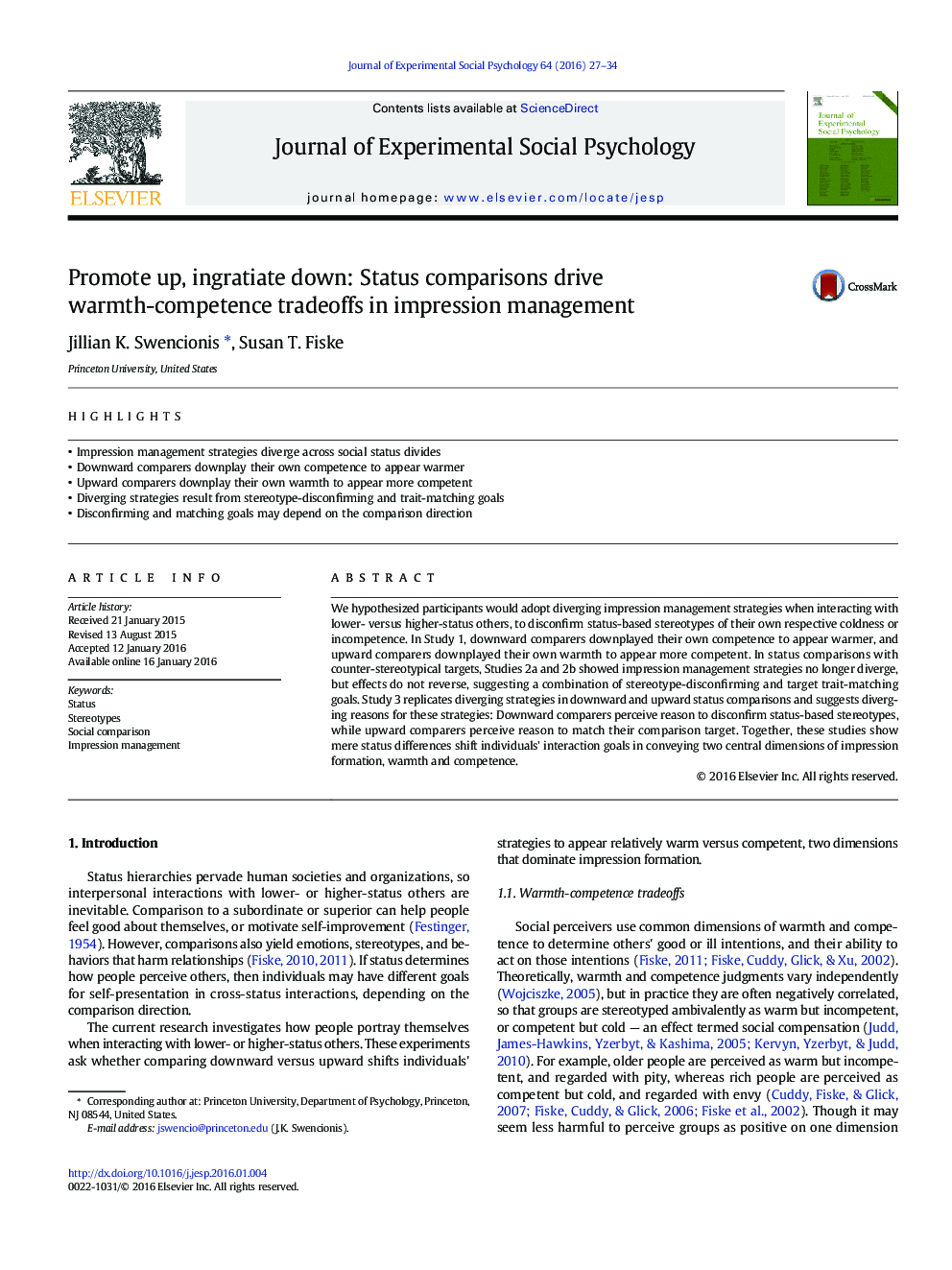| Article ID | Journal | Published Year | Pages | File Type |
|---|---|---|---|---|
| 947691 | Journal of Experimental Social Psychology | 2016 | 8 Pages |
•Impression management strategies diverge across social status divides•Downward comparers downplay their own competence to appear warmer•Upward comparers downplay their own warmth to appear more competent•Diverging strategies result from stereotype-disconfirming and trait-matching goals•Disconfirming and matching goals may depend on the comparison direction
We hypothesized participants would adopt diverging impression management strategies when interacting with lower- versus higher-status others, to disconfirm status-based stereotypes of their own respective coldness or incompetence. In Study 1, downward comparers downplayed their own competence to appear warmer, and upward comparers downplayed their own warmth to appear more competent. In status comparisons with counter-stereotypical targets, Studies 2a and 2b showed impression management strategies no longer diverge, but effects do not reverse, suggesting a combination of stereotype-disconfirming and target trait-matching goals. Study 3 replicates diverging strategies in downward and upward status comparisons and suggests diverging reasons for these strategies: Downward comparers perceive reason to disconfirm status-based stereotypes, while upward comparers perceive reason to match their comparison target. Together, these studies show mere status differences shift individuals' interaction goals in conveying two central dimensions of impression formation, warmth and competence.
